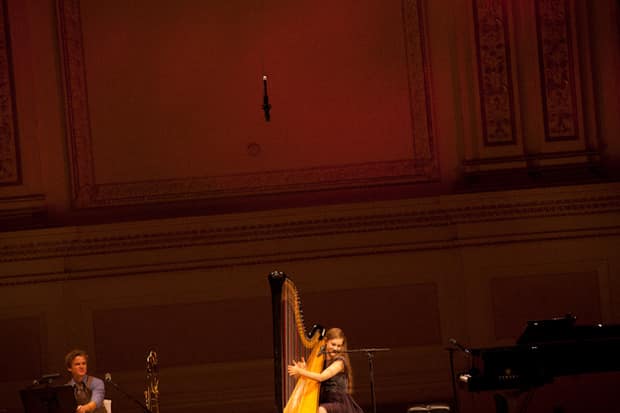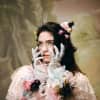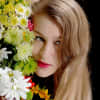Wildly geeked about the fact that she was performing at Carnegie Hall, Joanna Newsom tamped the undeniable power of the place between songs with jokes, audience crosstalk, extended tuning. Only once, at the beginning of her set, did she humbly acknowledge her career’s quick ascent. Soberly, she explained that Carnegie Hall is, in addition to an amorphous idea of classy success, a physical space with “acoustic properties that are magical.” Not long after that, she had to demure when someone screamed from a balcony, “Joanna, what’s it like being a goddess?” which was followed by someone else’s claim that she was actually a fairy. She passed on the goddess title to Dolly Parton, which received an awkward applause, but the easy logic of her audience’s grafting otherworldly qualities onto an inhuman Newsom is not unwarranted. She looks like a mermaid, long and fine wavy hair loose across the front of her body, playing harp in a purple dress with ample sheer, sitting at the piano bench with her shoulders shuffling like a saloon singer, a mixture of anachronism and fantasy. She often sings from just one side of her mouth as though she has to siphon her entire energy to blast out a voice with such narrow, raw focus. There were as many moments of bleakness as of total joy, often within the same song (many stretch to ten minutes, giving ample time for multiple moods and movements). Have One On Me, her most recent album, is a triple CD set of 18 songs and within such massive context, moments can get lost in the shuffle. Sometimes you notice she is singing of the Mekong, of door jambs and ham fists, sometimes you can’t get past the difficult and literal relationship she has with the word “love.” That word was frequently and effectively invoked last night. “In California,” one of Have One On Me’s most sprawling songs, has a moment where Newsom, backed only by her quiet harp, opens wide to sing sometimes I am so in love with you, the final syllable pulsing outward. And though it is quickly followed by a simile about a broken cuckoo clock, the unadorned moments were often most striking. Not that her showmanship was ineffective; towards the end of “In California,” against heavy drums and a pair of violins, Newsom began to wordlessly imitate the clock’s call and, heavily trilling in the enormous room, it sounded like an alarm.
For her second extended break to retune the enormous harp, Newsom again invited audience members to throw her questions. “Can I play you a song on Ryan [Francesconi, Newsom’s arranger]’s banjo?” a girl yelled from the balcony. The simple answer was no, but too polite to flatly deny, Newsom and her band talked around it, eventually conceding an imaginary five second solo which received fairly generous claps. The idea of breaking the fourth wall is not new or unusual at the point, but to play a place like Carnegie Hall without the fourth wall existing in the first place is both delightful and strange. The playbill’s lax biography puzzlingly, awesomely described Newsom as a character from M. Night Shyamalan’s Colonial-era film The Village, someone who belongs in the past century when we’ve already boarded a spaceship to the next. But she right there with us, gawking at us as much as we at her, a mutual dedication to the glee that comes with the triumph of performing at such a prestigious venue, even if she is levelheaded enough to know it’s only a room. For better or for worse, she’s not an artist who deserves that same levity.


